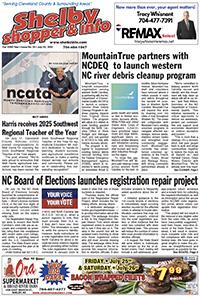| Calling All Voters: There is A Constitutional Amendment On May Ballot |
|
When is a primary election, not just a primary election? The answer is when there is also a state constitutional amendment on the ballot.
May elections in North Carolina, including the upcoming one on May 8, are often called “primary elections” since they are typically filled with candidates running in political party primaries. “However, this time, the May 8 election also includes the proposed state constitutional amendment on marriage,” Secretary of State Elaine F. Marshall said Monday.
“In terms of this proposed constitutional amendment,” Marshall said, “this is the one and only time North Carolina voters will be able to vote in favor of or in opposition to it. So, if there are any voters out there who have been thinking they might not vote in the primary, they should realize this is the ‘general election’ for this proposed amendment.”
The 2011 General Assembly approved a measure (Session Law 2011-409) that would put language into the North Carolina Constitution related to legally recognized marriages in the state.
The proposed amendment to Article 14 of the North Carolina Constitution would add a new section, to be called Section 6. It would read as follows:
“Sec. 6. Marriage.
Marriage between one man and one woman is the only domestic legal union that shall be valid or recognized in this State. This section does not prohibit a private party from entering into contracts with another private party; nor does this section prohibit courts from adjudicating the rights of private parties pursuant to such contracts.”
The General Assembly also approved the language that voters will see on the ballot this fall as they consider this constitutional amendment:
[ ] FOR [ ] AGAINST
Constitutional amendment to provide that marriage between one man and one woman is the only domestic legal union that shall be valid or recognized in this State.
The Constitutional Amendments Publication Commission has approved language for an official explanation of the proposed amendment that can be provided to voters to assist them in understanding the amendment. The Commission has three members including Secretary of State Marshall, North Carolina Attorney General Roy Cooper and the General Assembly’s Legislative Services Officer George Hall.
Secretary Marshall urges voters to take time to consider the amendment.
“The Constitution of North Carolina belongs to the people of North Carolina. As with every proposed constitutional amendment, the voters have an important responsibility here to consider this proposed change and cast their ballots according to the facts and to their personal beliefs.”
Here is the official explanation adopted by the Commission:
A current North Carolina law enacted in 1996 says that marriage between individuals of the same sex are not valid in North Carolina. This amendment would make that concept part of the North Carolina Constitution. If this amendment is passed by the voters, then under state law it can only be changed by another vote of the people.
The term “domestic legal union” used in the amendment is not defined in North Carolina law.
There is debate among legal experts about how this proposed constitutional amendment may impact North Carolina law as it relates to unmarried couples of same or opposite sex and same sex couples legally married in another state, particularly in regard to employment-related benefits for domestic partners; domestic violence laws; child custody and visitation rights; and end-of-life arrangements. The courts will ultimately make those decisions.
The amendment also says that private parties may still enter into contracts creating rights enforceable against each other. This means that unmarried persons, businesses and other private parties may be able to enter into agreements establishing personal rights, responsibilities, or benefits as to each other. The courts will decide the extent to which such contracts can be enforced.
This explanation is being provided to each North Carolina county board of elections. For copies, people may contact their county board of elections, the North Carolina Secretary of State’s Office, or visit the Secretary of State’s Office online at www.sosnc.com.
|
|
Printer-friendly format
|
|





